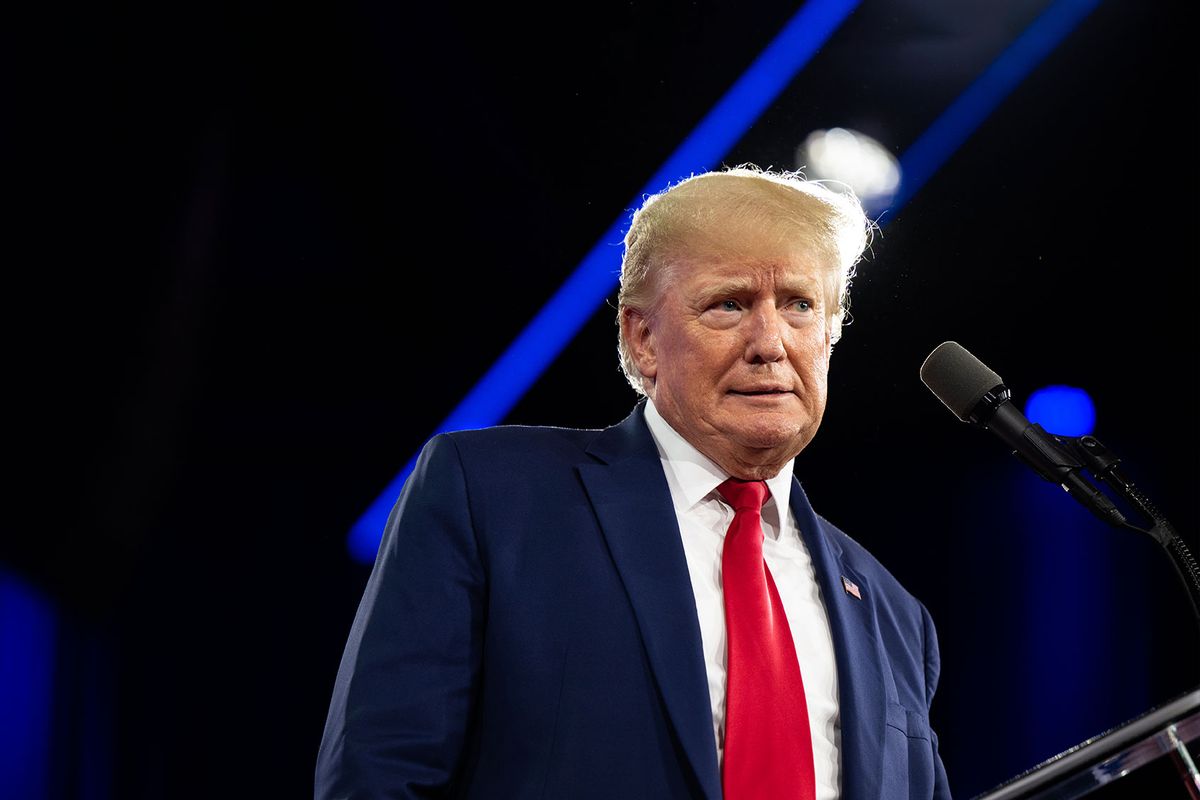“Tip of the iceberg”: Legal experts say Jack Smith has “a lot more evidence” than indictment shows

Special Counsel Jack Smith, who charged former President Donald Trump for his efforts to remain in power after he lost the 2020 presidential election, could have more evidence to offer on Trump’s state of mind that could be introduced at trial, according to legal experts.
Ryan Goodman, co-editor-in-chief of Just Security and professor at New York University School of Law, said on X, the platform formerly known as Twitter, that Smith likely presented “only a subset of the most compelling evidence.”
For instance, the indictment omits certain significant events, such as White House Counsel Pat Cipollone referring to the letter former Justice Department official Jeffrey Clark drafted as a “murder suicide pact” during the Jan. 3, 2021 Oval Office meeting with Trump, according to Just Security.
The former president wanted the DOJ to send the letter to Georgia and other key swing states, falsely claiming that they had “identified significant concerns that may have impacted the outcome of the election in multiple States.”
“Smith may not be including certain pieces of evidence because that evidence could be too confusing, or because it wouldn’t directly address the question of Trump’s criminal intent,” Former federal prosecutor Neama Rahmani told Salon.
He added that if Smith had “a smoking gun about Trump’s state of mind,” we would have heard about it by now.
The indictment also doesn’t include the Jan. 3 draft resignation letter from senior DOJ officials, the piece pointed out, where they expressed that “Acting Attorney General Jeff Rosen over the course of the last week repeatedly refused the President’s direct instructions to utilize the Department of Justice’s law enforcement powers for improper ends.”
“An indictment is not intended to be a recitation of all of the evidence,” former U.S. Attorney Barb McQuade, a University of Michigan law professor, told Salon. “All that is required is a brief, plain statement of the charge.”
Protecting the identity of witnesses in the integrity of the evidence is important to avoid improper tampering, she added. In this case, Smith wanted to issue more detail than is required to help the public understand why a former president is being charged with crimes, but “indictment almost never includes every piece of evidence.”
But all these pieces of evidence that are being discussed could still be introduced at trial, without having been mentioned in the indictment, Rahmani said.
“This is a speaking indictment meant for public consumption by the American people, but it’s not comprehensive of all the evidence that will be used at trial,” he added.
The ex-president faces four counts of charges including conspiracy to defraud the United States, conspiracy to obstruct an official proceeding, obstruction of and attempt to obstruct an official proceeding and conspiracy against rights.
The indictment also lists six co-conspirators who remain unnamed, but they are identified as four lawyers, a Justice Department official, and a political consultant. Their involvement includes spreading false claims of election fraud and devising strategies to obstruct the certification of Joe Biden’s victory in 2020.
An attorney for Trump ally Rudy Giuliani, Robert Costello, told the New York Times that he “appears” to be co-conspirator 1 and John Eastman, a former Trump attorney, has said he is co-conspirator 2.
Former Attorney General Bill Barr told CNN’s Kaitlan Collins Wednesday night that the Justice Department has “a lot more” evidence to come on Trump’s state of mind and that the public is “only seeing the tip of the iceberg on this.”
“That’s one of the things that impressed me about the indictment,” Barr said. “It was very spare, and there were a lot of things he could have said in there and I think there’s a lot more to come and I think they have a lot more evidence as to President Trump’s state of mind.”
Want a daily wrap-up of all the news and commentary Salon has to offer? Subscribe to our morning newsletter, Crash Course.
A key argument in the special counsel’s case is that Trump was aware his election claims were false, as he had been informed by multiple close aides about his election defeat. Trump’s legal team has contended that his statements were protected by the First Amendment, but other legal experts argue that their defense won’t fly in any court of law.
“Smith included more details than typical in the indictment because he wanted the American public to know how important the case is,” Rahmani said. “But it’s not everything. An indictment only requires factual allegations, that if proven, are sufficient to satisfy the elements of the crime.”
However, since the investigation is still ongoing, more evidence may be uncovered in the coming weeks and months, Rahmani added.
James Sample, a professor at Hofstra University’s School of Law, echoed a similar sentiment. With months remaining before trial and the possibility of new cooperating witnesses, it is reasonable to anticipate that Smith will continue to develop new evidence.
“As extensive as the indictment is, there should be little doubt that there will be superseding indictments as the case moves forward…” Sample said. “For that matter, Trump may find himself in situations in which, in attempting to defend himself in each individual case, he compromises himself in one or more of the others. At a certain point, Trump’s house of lies will collapse on itself.”
Read more
about the Trump indictment

